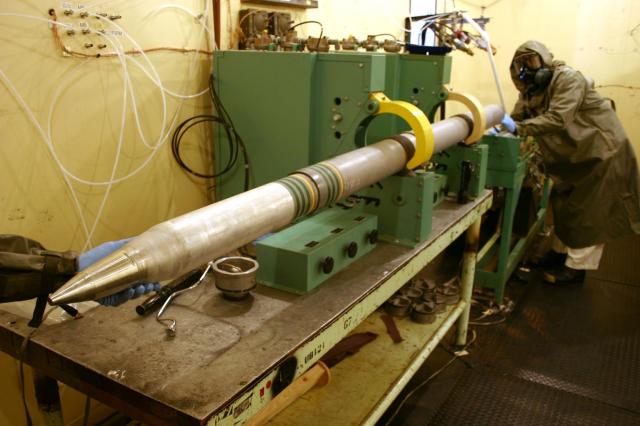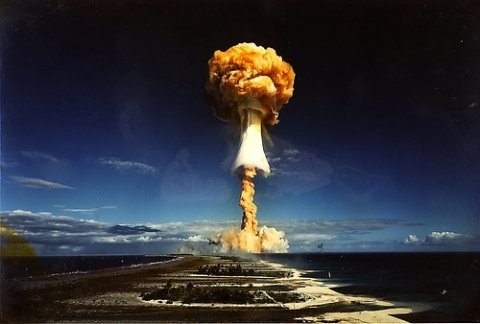The French Ministry of Defence has selected Astrium as prime contractor for the SECOIA program (French abbreviation for “destruction site for stockpile of old weapons”), which covers the design, construction and operation of a specialised plant for the destruction of chemical weapons from World War 1.
The program is part of France’s commitments within the framework of the Chemical Weapons Convention which came into force on 29 April 1997. The objective is to destroy unexploded chemical weapons discovered each year on former battlefields in northern and eastern France while at the same time ensuring maximum safety levels for people, the environment and property.
SECOIA will employ an automated system at the Mailly-le-Camp site (Aube, France) to destroy 42 tonnes of chemical weapons per year beginning in 2015. The weapons are currently stored by the French Interior Ministry in Suippes, France (Marne).
The plant developed by Astrium will make use of specially adapted equipment, and all weapon handling operations will be entirely remotely controlled. Pyro-chemical safety measures will also be implemented for the entire process, from the initial unloading of the weapons through to their final destruction.
The process that will be implemented will ensure complete control over the waste and the processing via specialized systems. All environmental regulations will be strictly respected and the site will be integrated in Europe’s Natura 2000 ecology network.
In its role as industrial prime contractor, Astrium will provide comprehensive services throughout the program, and will operate the plant during the operational phase.
To ensure the program’s success, Astrium will draw on its extensive experience in a wide range of high-technology fields: the development of complex systems and secure infrastructures, and the design and manufacture of automated, functional workshops that respect the highest requirements in pyrotechnic safety. Many of these skills were developed by Astrium to support France’s ocean-going ballistic deterrent capability at the Ile Longue ballistic submarine base.
The technical solution selected by Astrium to destroy the chemical weapons will make use of a detonation chamber, a concept that has already proven its operational efficiency in several countries. Belgium for example has been successfully using this same technique for several years in a non-automated facility.
As prime contractor, Astrium has opted for proven technology developed by recognized industrial specialists. A case in point is KOBE STEEL, a specialist in the destruction of old chemical weapons via detonation in a shielded enclosure. Astrium will be benefiting from the extensive experience of the Japanese company, which has equipped several plants operating in Europe and around the world (Belgium, Japan, China and the United States).
The second major industrial partner of Astrium is the company TREDI, a subsidiary of the French group SECHE Environment, a recognized specialist in the processing of industrial chemical waste in strict compliance with environmental regulations.
The SECOIA program is scheduled to last over 20 years, comprising two main phases: an initial period of a little more than four years to design, build and commission the facility, and the operational phase that should last more than 15 years.
Astrium is the number one company in Europe for space technologies and a wholly owned subsidiary of EADS, dedicated to providing civil and defence space systems and services. In 2010, Astrium had a turnover of EUR 5 billion and more than 15,000 employees in France, Germany, the United Kingdom, Spain and the Netherlands. Its three main areas of activity are Astrium Space Transportation for launchers and orbital infrastructure, Astrium Satellites for spacecraft and ground segment, and Astrium Services for comprehensive end-to-end solutions;











